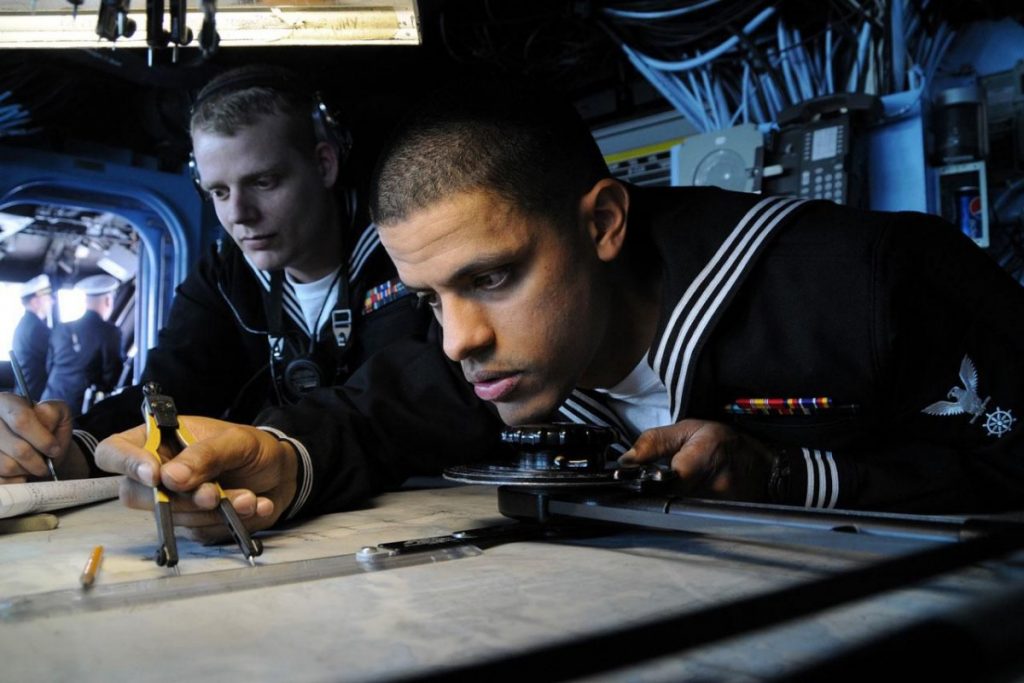My problems got worse
(Read part 1) This is how two friends changed forever. I was 19, with spotty employment, working low level part-time jobs. Sometimes I was “involuntarily terminated” from jobs because of poor attendance or petty theft. I did not understand at the time the awful effects that near daily use of marijuana was exerting on me. I had become a different person.
At age 19, I was diagnosed with clinical depression by a psychiatrist. Looking back from the much wiser perspective of mature man, I am absolutely certain that my depression was triggered directly by my regular cannabis use.
I had wanted to join the U.S. Navy immediately after high school because I’d wanted to “see the world.” But a neighborhood guy, another doper and USN veteran with a bad conduct discharge, had talked me out of it. He told me I’d most likely get involved with hard drugs if I did. I took his advice because I was not mentally strong enough to make decisions and stand on my own two feet. Cannabis had turned my mind into mush.
Learning about Don’s illness
Although Don and I had a falling out, I felt a deep sense of sorrow and regret when I heard from a mutual friend what had happened to him. I was shocked. Don’s parents sought professional help. In 1977, at age 22, Don was diagnosed with paranoid schizophrenia.
I knew Don had many problems but had no idea how severe they were. The psychiatrist told Don and his parents that his illness was triggered by heavy cannabis smoking. Don began receiving treatment which involved electric shock treatments and oral medications. They also told him schizophrenia was a regressive illness and there was no cure.
If memory serves me right, Don was given the medication Thorazine. With these meds and after the shock treatments, he was rehabilitated sufficiently. His behavior was no longer disturbing to his family, and he could go back home from the state mental hospital.
Two friends meet again
One day, on my 20th birthday in 1977, I heard that Don had returned home. So I called on my old friend. By this time the hard feelings had dissipated, we were friends once again. We decided to go for a walk up to the corner store so I could buy a pack of cigarettes (another bad habit I had at the time). While walking up the street Don explained his the symptoms of his illness and everything the MD had explained to him.
After listening to him for a while, I asked him the question: “Don, what do you feel like day to day, what does your mind feel like with this illness from hour to hour and minute by minute?”His response shook me to my core and changed the entire course of my life.
“I feel like I’m on pot all the time.”
Seeing Don like that Changed Me Forever
Don’s words hit me like a ton of bricks. They told me in no uncertain terms that cannabis is a self-induced psychosis. So, I finally summoned the strength to quit for good, without any third-party intervention. It was my love of physical fitness and sports that got me through my “self-rehabilitation.” Since then I’ve never touched marijuana or any other illicit narcotic again.
I felt a tremendous sense of relief, felt a huge burden lifted from my shoulders. But, it would take some time for my mind and body to fully recover from the damage I’d inflicted on myself with cannabis. I resumed running again and taught myself bodybuilding. I also began studying nutrition and started eating healthier food to complement my new fitness regimen.
Getting back to my old self
Once again I was interested in sports. Slowly, the cravings for cannabis ceased. I also stopped smoking tobacco. I stopped associating with dopers and began associating with a group of drug-free people. For the first time in my life, I started dating.
I had become strong again in body, mind, soul, and spirit. Now I was able to think clearly with a lucid mind. I felt free of the depression that had ruled my life for the past few years. When my mind and body had fully recovered, I finally took charge of my life’s direction.

I enlisted in the US Navy and got off to a great start, because I was highly motivated and determined to succeed and gain self-respect. Graduating in the top 10% of my boot camp company, I was meritoriously promoted one rank. I shipped out to an aircraft carrier and worked in the Communications department as an I/T Specialist.
Both the Admiral and Commanding Officer chose me as their personal communications specialists, high profile assignments with a lot of respect. I also served as Communications Supervisor in charge of the communications center including a staff of 12. By the end of my third year of active duty, I achieved the rank of Petty Officer Second Class (E-5 paygrade), the maximum rank I could’ve possibly achieved during my four years of active duty.
Leaving the Navy, getting an education and finding a job
I was honorably discharged as a decorated veteran. On my final evaluation, my Commanding Officer wrote “His talents and dedication to duty will be sorely missed.” I was very proud. I’d served with distinction and always earned top performance evaluations.
Following my discharge, I felt strong, confident, had boundless energy, and was ready to take on the world! I enrolled at a community college. But, most importantly, I had regained the respect of my family and my self-respect.
After graduating from community college with honors. I transferred to a nearby state university and graduated Magna Cum Laude with a degree in Business Management and minor in I/T.
I embarked on a long and prosperous I/T career. My last 20 years I worked for a blue-chip Fortune 500 company from which I recently retired. I also have raised my son to be dope free \ tobacco free \ alcohol free. He’s a full-time college student who was recently inducted into the National Honor Society. (To read the author’s conclusion, subscribe to our blog for Part 3.)

